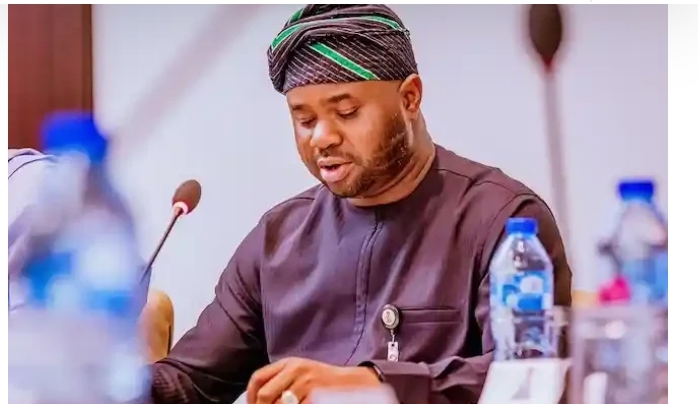FIRS Chairman Highlights Nigeria’s Tax Reforms At LCCI Event
The Executive Chairman of the Federal Inland Revenue Service (FIRS), Zacch Adedeji, addressed Nigeria’s ongoing tax reforms during a stakeholders’ engagement hosted by the Lagos Chamber of Commerce and Industry (LCCI) on Wednesday. Adedeji, represented by Oti Olaniyi, Acting Director of the Medium Taxpayers Department (South), emphasised the agency’s customer-centric approach in its restructuring, which aims to enhance efficiency and responsiveness. The event, titled Organised Private Sector Stakeholders’ Engagement on Emerging Tax Matters, brought together industry leaders to discuss the progress and challenges in the country’s tax reforms. Recommended Jobs WIGWE UNIVERSITY MASSIVE RECRUITMENT FOR NON-ACADEMIC STAFF NIGERIAN ARMY RECRUITMENT FOR SSC/DSSC APPLICATION (GRADUATES) FIRS Transformation and Digitalisation According to Adedeji, the FIRS transformation is focused on decentralising operations, adopting technology, and simplifying tax services. One major innovation is the introduction of the ‘TaxPro Max’ platform, which streamlines tax filing, e-reporting, and compliance through digital solutions. Advertisements “FIRS is committed to a customer-focused service delivery aimed at boosting voluntary compliance and increasing revenue generation,” Adedeji stated. The restructuring also includes a focus on different taxpayer segments—small, medium, and large—tailoring services to meet their distinct needs. Adedeji noted that broadening the tax base is essential to reducing Nigeria’s reliance on oil revenues and promoting diversification into non-oil sectors. Reforms and Incentives The FIRS chairman highlighted the introduction of a simplified withholding tax regime for small businesses and reduced rates for low-margin enterprises, which are designed to tackle tax avoidance and improve compliance. Additionally, tax incentives in the gas sector, including zero VAT on compressed natural gas and liquefied petroleum gas, were introduced to stimulate investment and diversify Nigeria’s energy sources. Advertisements Call for Collaboration and Transparency Adedeji urged businesses and citizens to collaborate in advancing Nigeria’s tax system, stressing that transparency and innovation are key to ensuring long-term success. He further emphasised the importance of tax education and public awareness to foster a culture of compliance. RECOMMENDED FOR YOU
collaboration between the private sector and the government to address Nigeria’s fiscal challenges. He pointed out that the country’s tax-to-GDP ratio remains low at 10.86 per cent, compared to the African average of 15-20 per cent. He stressed the need for comprehensive reforms and strong public-private cooperation to achieve the Federal Government’s target of raising the ratio to 18 per cent within three years. Idahosa also commended FIRS for leveraging technology, such as the TaxPro Max platform, and praised the establishment of the Presidential Committee on Fiscal Policy and Tax Reforms, chaired by Taiwo Oyedele. Advertisements Delays in Implementing Reforms Dr. Chinyere Almona, LCCI
Director General and a member of the Presidential Committee on Fiscal Policy and Tax Reforms, noted that delays in legislative approval have stalled the implementation of the new withholding tax regime. She emphasised the need for patience, explaining that the revision of tax laws must go through the proper approval processes. “It’s difficult to have things come out piecemeal, as it won’t benefit anyone to have reforms that are not integrated,” Almona remarked, urging industry players to remain patient. The event concluded with a strong consensus on the need for collaboration and patience as Nigeria continues its journey towards a more efficient and inclusive tax system


























